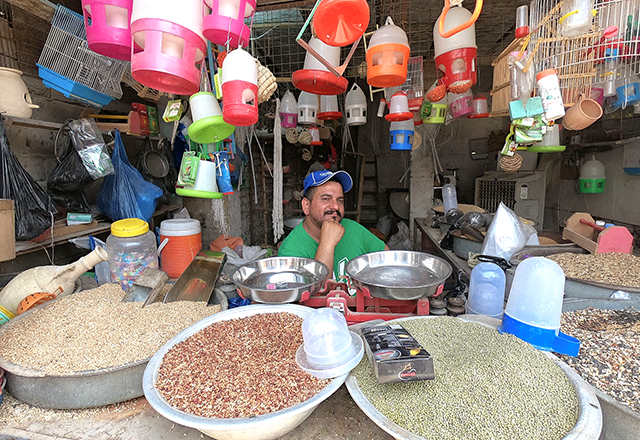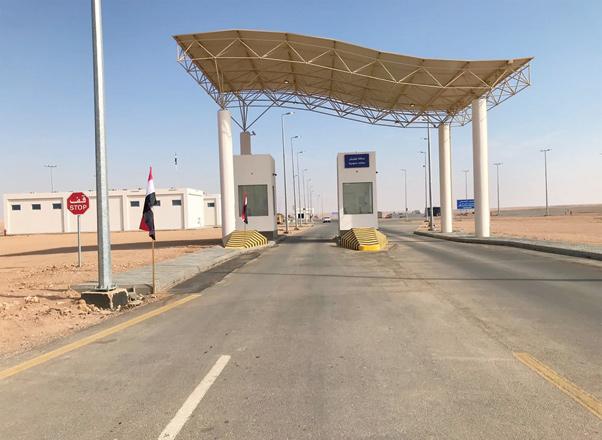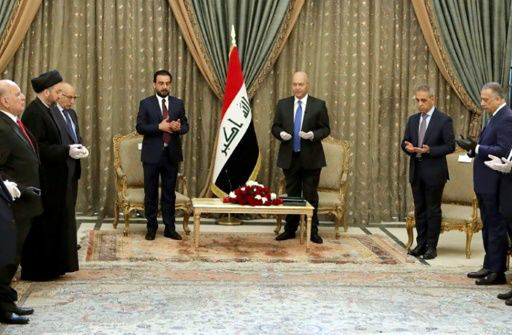You are here
Iraqi finance minister seeks Gulf funds to stave off fiscal collapse
By AFP - May 23,2020 - Last updated at May 23,2020

An Iraqi shopkeeper waits for customers at a bird market in Iraq's southern city of Nasiriyah in Dhi Qar province, on May 23 (AFP photo)
BAGHDAD — Iraq's new finance minister was in Saudi Arabia on Saturday seeking emergency funds to stave off an impending financial crisis brought on by collapsing oil prices.
In his first trip abroad since becoming minister, Ali Allawi met the Saudi finance, energy and foreign ministers in Riyadh on Friday, Iraqi state media reported.
In an interview with state television before his departure, Allawi said his priority would be to secure funds to plug gaps in Iraq's budget.
"Iraq is in need of immediate monetary support so that the government can fulfill its obligations towards its employees," he said.
Iraq is facing a liquidity crisis following the collapse of crude oil prices from more than $50 per barrel last year to around $20 per barrel in recent months.
That has prompted fears about the government's ability to pay salaries to some four million state workers, as well as pensions and welfare to another four million people.
The government budgeted almost $4 billion a month for public salaries in 2020, but it only earned $1.4 billion in April by selling crude oil -- virtually the only way authorities can fund official expenditures.
Prime Minister Mustafa Kadhemi last week pledged that May salaries would be paid as usual, with officials telling AFP they would likely have to resort to internal borrowing.
Ahead of Allawi's trip, an Iraqi government source told AFP the minister would also travel to Kuwait and the United Arab Emirates "to gather financial support for Iraq".
Kadhemi is also likely to visit the Gulf, the official said.
The prime minister took office in early May after months of political deadlock and is known to be a personal friend of Saudi Crown Prince Mohammed Bin Salman.
His appointment was welcomed by the United States, which swiftly granted Iraq a 120-day extension on a waiver allowing it to import Iranian gas to feed its worn-out power grid.
Washington has insisted that Iraq wean off Iranian energy and partner with American or Gulf companies to stand up its overstretched electricity sector.
Last year, Iraq signed a landmark deal with the six-nation Gulf Cooperation Council (GCC) for a transmission line to import 500 megawatts of electricity to its grid this year.
The 300-kilometre (200-mile) line would run from Kuwait to Iraq's southern port of Faw and be financed by the GCC -- Kuwait, Saudi Arabia, the UAE, Qatar, Oman and Bahrain -- according to the electricity ministry.
A second Iraqi official told AFP that the previous cabinet had considered asking Kuwait to accept a delay in the monthly reparations payments it makes to compensate for Saddam Hussein's invasion of the Gulf State in 1991.
"We need as much liquidity as we can get for salaries," that official said.
Related Articles
BAGHDAD — Iraq on Sunday called on the United States and Britain to extradite former officials accused of facilitating the theft of $2.5 bil
BAGHDAD, Iraq — Iraq and Saudi Arabia on Wednesday reopened their land border for the first time in 30 years, with closer trade ties between
BAGHDAD — Iraqi President Barham Saleh nominated spy chief Mustafa Kadhemi on Thursday as the country's third prime minister-designate this
















